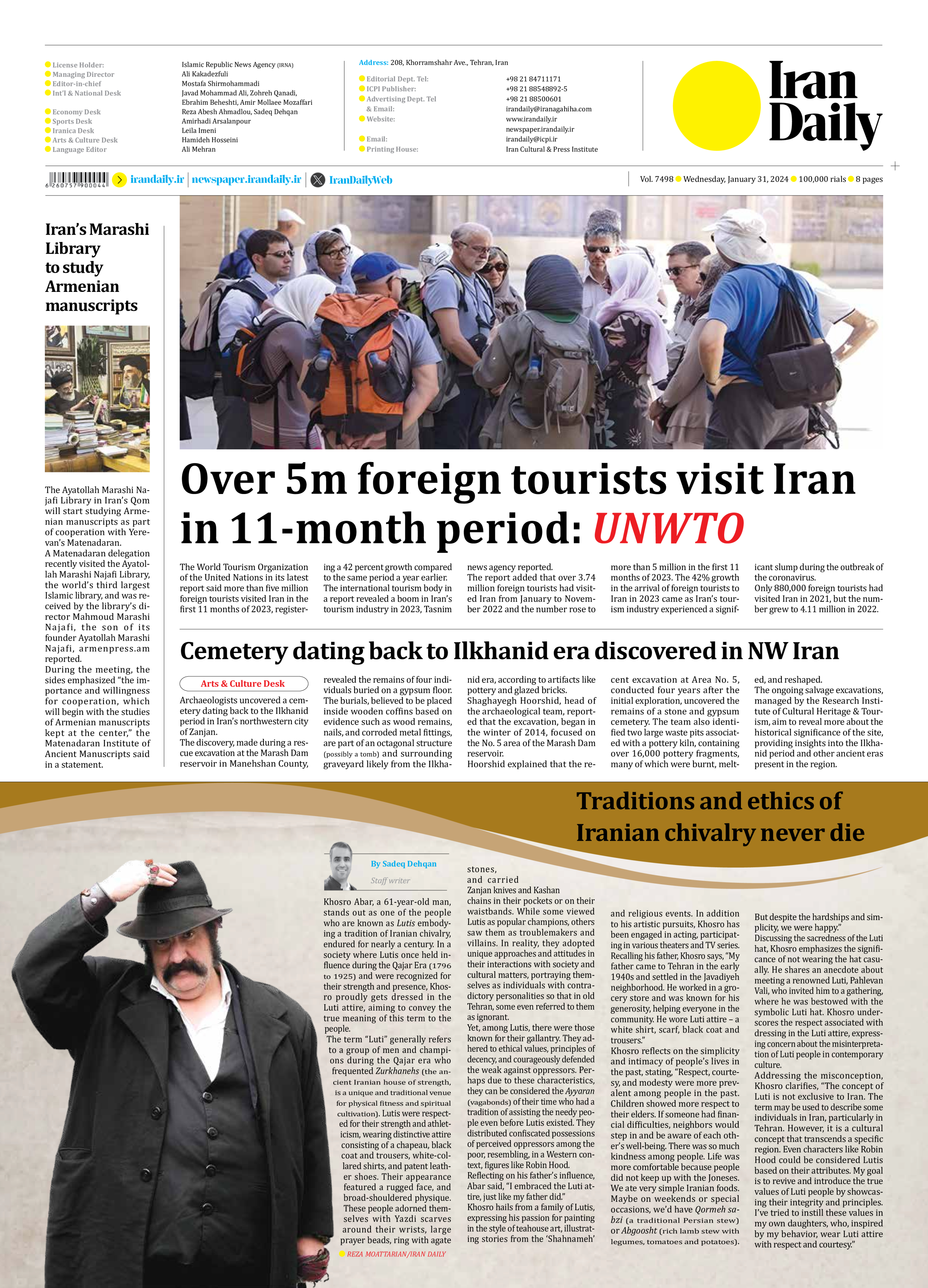
Cemetery dating back to Ilkhanid era discovered in NW Iran
Archaeologists uncovered a cemetery dating back to the Ilkhanid period in Iran’s northwestern city of Zanjan.
The discovery, made during a rescue excavation at the Marash Dam reservoir in Manehshan County, revealed the remains of four individuals buried on a gypsum floor. The burials, believed to be placed inside wooden coffins based on evidence such as wood remains, nails, and corroded metal fittings, are part of an octagonal structure (possibly a tomb) and surrounding graveyard likely from the Ilkhanid era, according to artifacts like pottery and glazed bricks.
Shaghayegh Hoorshid, head of the archaeological team, reported that the excavation, began in the winter of 2014, focused on the No. 5 area of the Marash Dam reservoir.
Hoorshid explained that the recent excavation at Area No. 5, conducted four years after the initial exploration, uncovered the remains of a stone and gypsum cemetery. The team also identified two large waste pits associated with a pottery kiln, containing over 16,000 pottery fragments, many of which were burnt, melted, and reshaped.
The ongoing salvage excavations, managed by the Research Institute of Cultural Heritage & Tourism, aim to reveal more about the historical significance of the site, providing insights into the Ilkhanid period and other ancient eras present in the region.







